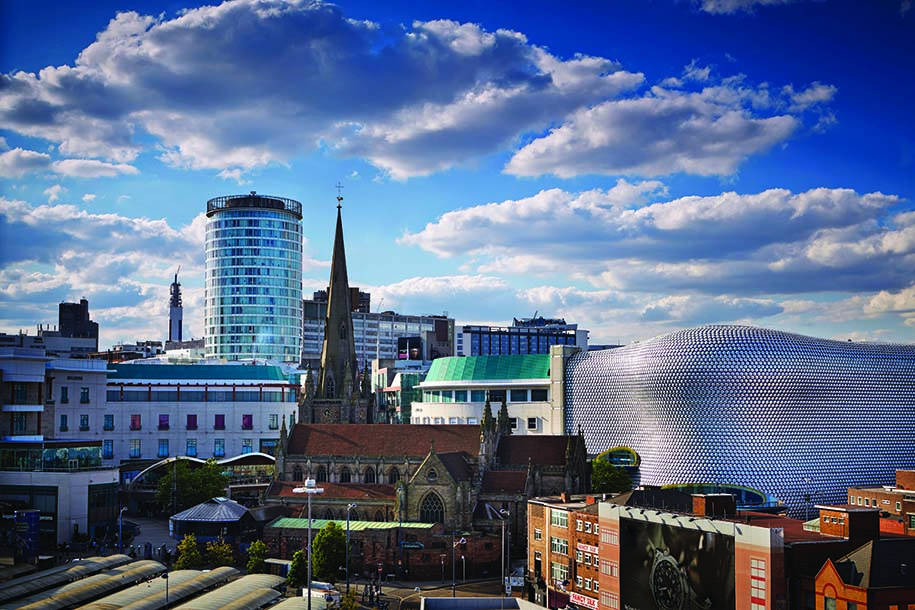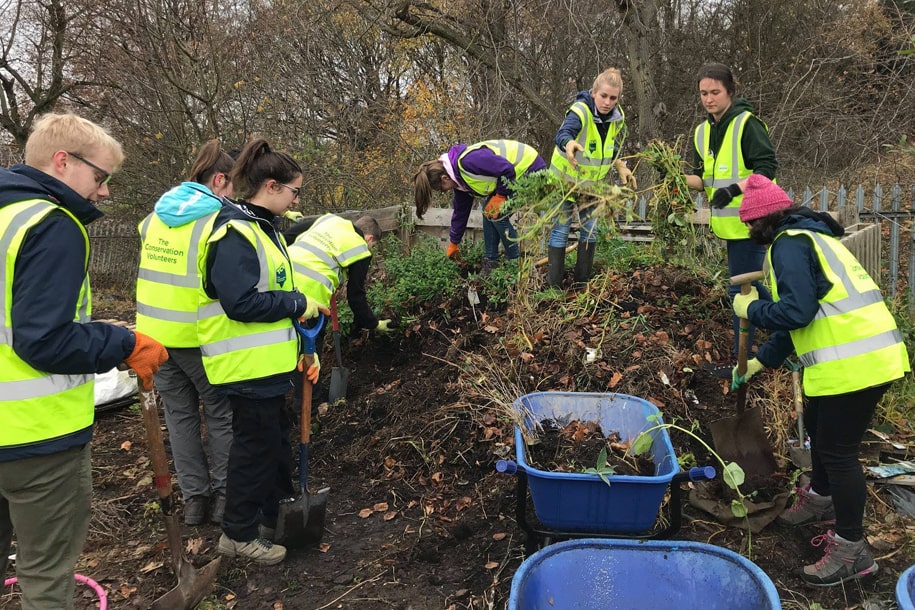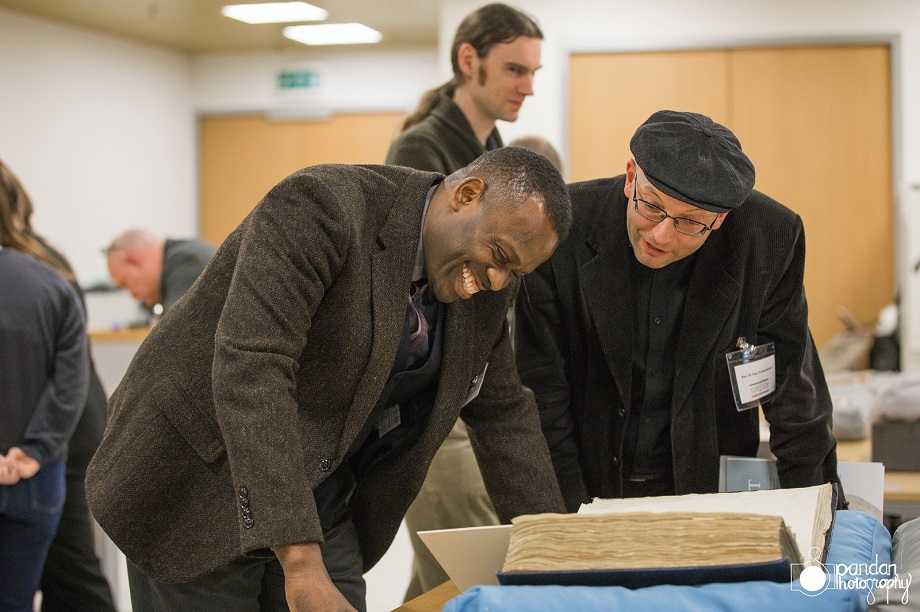The University of Birmingham has a major impact on the city and region as an employer, research leader and international gateway. We are a driver of economic growth, a catalyst for social change and a champion of cultural development in Birmingham, the West Midlands and beyond.
Economic impact
As one of the region’s largest employers, the University makes a significant contribution to the economies of Birmingham and the West Midlands, creating prosperity and driving growth both locally and nationally. Through our own activities, our capital spending, and the spending of our staff, students and visitors, we also support supply chains throughout the region and country.
Our economic impact analysis showed that the University supports more than 13,000 jobs in the West Midlands and almost 1 in 50 jobs in Birmingham depends on the University.

We also help to deliver growth and prosperity by bringing in spending and investment to the region. The impact of the University’s spending and that of our students is worth £678.8 million per year to Birmingham’s economy and £951.8 million per year to the West Midlands (including Birmingham).
Our teaching contributes £1.34 billion to the economy and we are a net importer of talent; 24 per cent of our students come from the West Midlands and almost 48 per cent of our students stay in the region after graduation.
Every £1 million invested in our research by the UK Research Councils generates an additional £12 million for the economy. Our 11,000 donors have also contributed £193 million to University and regional projects.
Social impact
The value of our staff and students goes far beyond the financial benefits they bring to the region.
They have a positive impact in the local community through volunteering, by their involvement in charity events and their contribution to the social and cultural richness of the local area.
Students are encouraged as soon as they begin university life to become actively involved in volunteering alongside their studies. Every year, nearly 8,000 students volunteer through the Guild of Students and give their time to thousands of different projects. From helping out in local schools to working with local charities, they make a significant contribution to the community.

Our staff members also volunteer many hours in support of those in need, whether as school governors, helping charities or taking part in charitable events. Since October 2019 all University staff have been entitled to a volunteering allowance of one day each year to volunteer locally. This allowance is part of the University’s wider commitment to both the professional development of our staff and our civic responsibilities to our city and region.
The Birmingham Law School Pro Bono Group, working in partnership with law firms and chambers such as Shakespeare Martineau LLP, Mills & Reeve LLP, No5 Chambers and organisations like Birmingham Community Law Centre, offers award-winning free legal services for the most vulnerable in the local community.
Birmingham FLAG, the largest Pro Bono Group project, offers free legal advice to clients on cases covering a range of legal areas and gives volunteers an active role in responding to legal aid cuts and helping to resolve pressing legal problems.
In the fight against COVID-19, medical students used their skills by volunteering to train as NHS 111 call handlers with the West Midlands Ambulance Service, work on the front line, and support NHS workers with childcare provision during the coronavirus crisis. They also joined forces with doctors to raise over £25,000 for charity.
Our Development and Alumni Relations Office (DARO) is actively working with local partners such as the West Midlands Combined Authority (WMCA), HSBC, Cancer Research UK (CRUK) and Birmingham Women’s and Children’s Hospital to create new fundraising opportunities locally and encourage philanthropic support for charitable projects across campus.
Cultural impact
We not only generate substantial economic and social benefit for Birmingham and the West Midlands, we make a significant contribution to the fabric of the region’s cultural offering and quality of life through a host of cultural activities and assets.
We have three museums, an art gallery, a botanic garden and two concert halls. These include the Barber Institute of Fine Arts, the Lapworth Museum of Geology, Winterbourne House and Garden, the International Centre for Heritage, and the Shakespeare Institute.
Our 250-acre campus welcomes hundreds of thousands of visitors annually for lectures, community events and educational trips.
Our Research and Cultural Collections hosts an array of extraordinary artefacts. From ancient pottery to modern art, from scientific instruments to sculptures, the objects in the collections play an invaluable social, cultural and educational role.
The International Centre for Heritage, a partnership formed over 30 years ago between the University of Birmingham and the Ironbridge Gorge Museum Trust (IGMT) which manages the World Heritage Site and ten museums in Shropshire, is helping to advance understanding of cultural heritage.
We work alongside the creative and cultural industries to co-create projects and activities which add to the region's vibrancy.
Our bespoke cultural internships scheme, and pioneering partnership with the RSC at our Stratford-based Shakespeare Institute, are at the heart of our contribution to the regeneration of the cultural sector.

We are also using our expertise to help to make the most of the region’s cultural treasures. This includes the Everything to Everybody project to revive the city’s almost-forgotten Birmingham Shakespeare Memorial Library and Midlands Arts Papers, a regional collaboration between researchers at the University of Birmingham and cultural practitioners from 13 partner museums and galleries to showcase the outstanding works of art and design in public collections across the Midlands.
In 2022, our campus will provide the principal village for athletes at the 2022 Commonwealth Games and will be the focal point of a festival of research and teaching-led activities. Our official partnership with the Birmingham 2022 Games builds on our rich sporting heritage and will see us playing our part raising the profile of our region and making it a better place to live, work and visit.